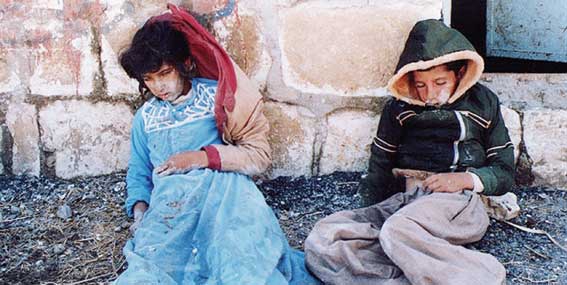(2).jpg)

Chemical bombardment of Sardasht was the most awful and disastrous chemical attack during the war which brought many negative effects and consequences. Islamic Republic of Iran called this attack inhumane and Sardasht the first victim of chemical weapons in the world after the nuclear bombardment of Hiroshima. Chemical attack of invader Iraqi bombers on Sardasht left 110 martyred and 5,000 injured.
.jpg)
.jpg)
Unfortunately, many citizens of Sardasht are still suffering from negative effects and consequences of this attack. But, despite commitment of this awful crime, international circles did nothing to halt the continuation of the invasion and even did not blame the Iraqi regime for that and instead, ignored it as before.
.jpg)
.jpg)
Despite the passage of 29 years from the chemical bombings in Sardasht, still the families of victims urge the international community to bring the main perpetrators of the crimes to justice, but their calls seem to have been futile so far.
(1).jpg)
(1).jpeg)
Starting in 1981, and picking up steam a couple years later, Iraq�fired countless chemical warheads�at Iranian soldiers and at people in Iraqi Kurdish towns, as part of the eight-year Iran-Iraq war. Today, 29 years on, Iran is home to the world�s largest population of chemical weapons survivors, a significant proportion of whom are chronically ill.�The 1980-1988 Iran-Iraq war was the longest conventional war of the twentieth century and one of the bloodiest.
.jpg)
(1).jpg)
Iraqi troops carried out the first extensive chemical attack on Iran in March 1981, with shells containing tons of sulfur mustard and nerve agents. Later, with the�help of Germany, Iraq began to manufacture mustard gas and nerve agents in large amounts. Following several requests from the Iranian government, the �international community� sent three official investigative teams to Iran starting in March 1984, but only after helicopters built by the Germans, Russians and French had dumped still more tons of poison on Iranian soil. In March 1984, the UN secretary-general, Javier P�rez de Cu�llar, ordered an investigation that exposed Iraq as a violator of the 1925 Geneva Protocol outlawing the use of poisonous gas in wars. Member states�ignored�the finding. Two more official investigations took place: one in February-March 1986 and another in April 1987. Again, the international community�disregarded�the results.
.jpg)
.jpg)
Companies from Britain, France, Germany, Spain, the�United States, and other countries were involved in selling and providing material to Iraq for the chemical weapons. To date, no company has been prosecuted for its involvement in this trade. Chemical attacks on residential areas occurred more than 30 times in Iran, as well as in the Iraqi Kurdish town of�Halabja, where more than 5,000 civilians were killed.�Various chemical agents were used on soldiers and civilians across the span of seven years. Most nerve agents have fatal consequences for human beings and cause damage to the environment as well. Due to the effects of mustard gas on DNA, survivors face long-term afflictions of the respiratory organs, eyes and skin. Chronic lung, eye and skin ailments are common among those exposed. There can also be further complications, such as cancers and immune system, psychological and genetic disorders. The severity of these conditions depends on the route and duration of exposure, as well as the individual�s powers of bodily resistance. Each year, more and more of the chemically wounded die, their lungs finally collapsing after years of excruciating labored breathing and coughing.
(2).png)

Two years ago Organization for the Prohibition of Chemical Weapons Director General,�Ahmet �z�mc�,�issued�a statement�on behalf of the OPCW to commemorate the chemical weapons attack on Sardasht in 1987.�The Minister of Foreign Affairs of the Islamic Republic of Iran, Mohammad Javad Zarif, also met with Ambassador Ahmet �z�mc�, at OPCW Headquarters in The Hague, on Thursday, June 23 2016. Dr. Zarif remarked, �The OPCW is at the forefront of efforts to ensure chemical weapons are never used again, and enjoys the full support of Islamic Republic of Iran. Zarif then stated, �Iran supports the creation of a Middle East Weapons of Mass Destruction Free Zone, in particular Chemical Weapons.�

The Iranian Foreign Minister, accompanied by the Director-General, also visited the monuments to the victims of chemical attacks in Sardasht, Iran and Halabja, Iraq located on the OPCW grounds. The Director-General expressed, �On this solemn anniversary, we re-dedicate ourselves to the task of eliminating the scourge of chemical weapons to ensure that such tragedies never again blight our humanity.��Foreign Minister Zarif extended his invitation for the Director-General to visit Iran to strengthen cooperation between the OPCW and Iran.

By Iran Review











